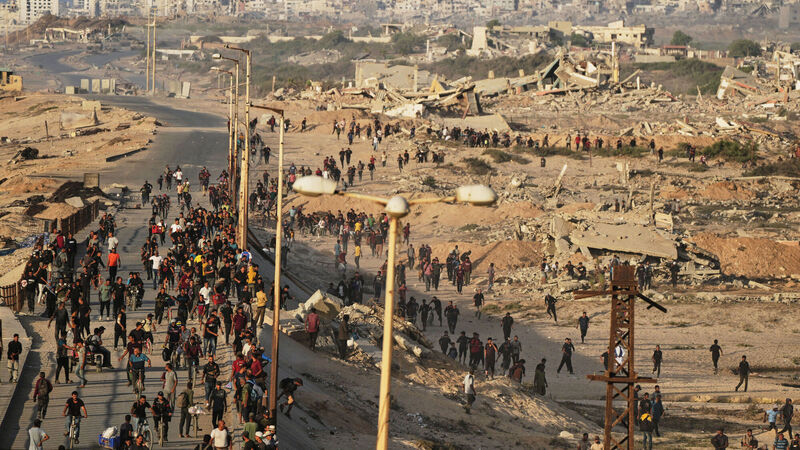Irish Examiner view: Progress in Gaza must be welcomed

Israeli tanks on the coastal road leading to Gaza City as displaced Palestinians gather near Wadi Gaza in the central Gaza Strip on Thursday. Picture: Abdel Kareem Hana/AP
Try from €1.50 / week
SUBSCRIBEPeace deal hopes
Is there hope finally in sight for Gaza? This week a deal has been announced, and more importantly, it has been agreed by all sides.
Already a subscriber? Sign in
You have reached your article limit.
Annual €130 €80
Best value
Monthly €12€6 / month
Introductory offers for new customers. Annual billed once for first year. Renews at €130. Monthly initial discount (first 3 months) billed monthly, then €12 a month. Ts&Cs apply.
CONNECT WITH US TODAY
Be the first to know the latest news and updates
Newsletter
Sign up to the best reads of the week from irishexaminer.com selected just for you.
Newsletter
Keep up with stories of the day with our lunchtime news wrap and important breaking news alerts.
Newsletter
Sign up to the best reads of the week from irishexaminer.com selected just for you.
Monday, February 9, 2026 - 5:00 PM
Monday, February 9, 2026 - 5:00 PM
Monday, February 9, 2026 - 6:00 PM
© Examiner Echo Group Limited